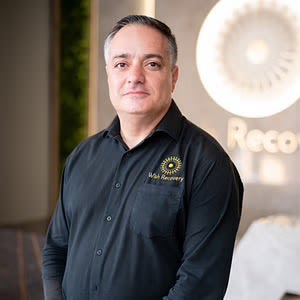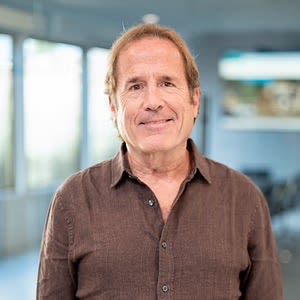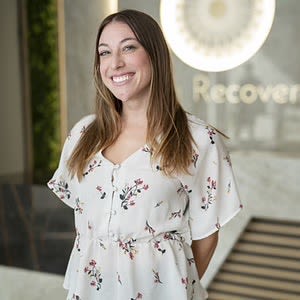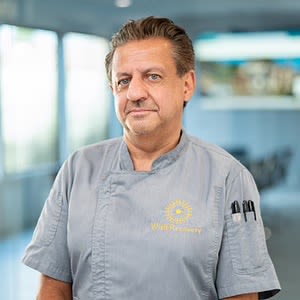






Wish Recovery
Verified Center
This provider's information has been quality-checked by Recovery.com's Research Team for accuracy and completeness, including center verification through appropriate third-party organizations.
Treatment Focus
This center treats substance use disorders and co-occurring mental health conditions. Your treatment plan addresses each condition at once with personalized, compassionate care for comprehensive healing.
Primary Level of Care
Offering intensive care with 24/7 monitoring, residential treatment is typically 30 days and can cover multiple levels of care. Length can range from 14 to 90 days typically.
Treatment Focus
This center treats substance use disorders and co-occurring mental health conditions. Your treatment plan addresses each condition at once with personalized, compassionate care for comprehensive healing.
Primary Level of Care
Offering intensive care with 24/7 monitoring, residential treatment is typically 30 days and can cover multiple levels of care. Length can range from 14 to 90 days typically.
Provider's Policy
We accept most major insurance plans and have made the verification process seamless and straightforward. Wish does not accept Medicaid, MediCal, or Medicare.
Wish Recovery
Wish Recovery
About Wish Recovery
Wish Recovery treats addiction and co-occurring mental health conditions in a luxury, up-scale home. They welcome 6 clients at a time for a 6:1 staff-to-client ratio. Wish Recovery prioritizes individualized care, beginning with physical and psychological assessments, diagnoses, and a tailored treatment plan. They provide detox, residential care, and an intensive outpatient program (IOP).
Evidence-Based Care Delivered by Professionals
Wish Recovery’s team includes physicians, psychiatrists, therapists, and counselors. Their certified addictionologist conducts an initial physical assessment and oversees treatment. Wish Recovery offers 30, 60, and 90 day residential treatment plans. Clients engage in 3-4 weekly individual therapy sessions, group therapy, family therapy, and couples therapy during treatment. Their evidence-based talk therapies include cognitive behavioral therapy (CBT), dialectical behavioral therapy (DBT), eye movement desensitization and reprocessing (EMDR), strengths-based therapy, and motivational interviewing techniques.
Specialty Treatment Services
Wish Recovery’s specialty treatment tracks include programs for first responders and professionals. First responders receive trauma-informed, occupation-informed care from treatment professionals. Executives and professionals can join an intensive, fast-tracked recovery program. All clients can bring their phones and laptops if needed.
Restorative Amenities And Activities
Wish Recovery offers various holistic and supplementary therapies for comprehensive mind, body, and spirit recovery. These include art therapy, yoga, gardening, IV drip therapy, NAD+ therapy, chiropractic care, acupuncture, transcranial magnetic stimulation (TMS), hypnotherapy, biofeedback, and more. They also have an outdoor pool, steam room, sauna, theater, on-site gym, minigolf, and various outdoor games.

Highlights from the Center
Highlights
These highlights are provided by and paid for by the center.
1-on-1 Counseling
Customized Treatment Plans
Perfect for Professionals
Private Rooms Available
Tech Friendly
Center Overview
Treatment Focus
This center treats substance use disorders and co-occurring mental health conditions. Your treatment plan addresses each condition at once with personalized, compassionate care for comprehensive healing.
Joint Commission Accredited
The Joint Commission accreditation is a voluntary, objective process that evaluates and accredits healthcare organizations (like treatment centers) based on performance standards designed to improve quality and safety for patients. To be accredited means the treatment center has been found to meet the Commission's standards for quality and safety in patient care.
Insurance Accepted
Cash Pay Rates
Estimated Cash Pay Rate
Center pricing can vary based on program and length of stay. Contact the center for more information. Recovery.com strives for price transparency so you can make an informed decision.
Luxury rehab centers offer a unique blend of luxurious amenities and high-quality treatment. From private suites to gourmet dining, personal trainers to spa treatments, these facilities provide a high level of comfort and discretion.

Meet Your Care Team

Kristen
Clinical Director of Outpatient Services
LMFT

Jason
Medical Director
MD

Roz
Clinical Director
LMFT 102602

Navid
Primary Therapist
AMFT127021

Allison
Admissions Director

Gary
Case Manager
RADT

Kevin
Case Manager

Taylor-Rose
Registered Dietitian

Nikki
Yoga Instructor

Ali
Chef




Levels of Care









Your Care Options
Specializations
Alcohol
Using alcohol as a coping mechanism, or drinking excessively throughout the week, signals an alcohol use disorder.
Detox
Detox fully and safely removes toxic substances from the body, allowing the next steps in treatment to begin with a clean slate.
Benzodiazepines
Benzodiazepines are prescribed to treat anxiety and sleep issues. They are highly habit forming, and their abuse can cause mood changes and poor judgement.
Executives
Executive treatment programs typically directly support the needs of people who manage businesses and may provide flexible schedules and office space to allow work during treatment.
Heroin
Heroin is a highly addictive and illegal opioid. It can cause insomnia, collapsed veins, heart issues, and additional mental health issues.
Opioids
Opioids produce pain-relief and euphoria, which can lead to addiction. This class of drugs includes prescribed medication and the illegal drug heroin.
Prescription Drugs
It's possible to abuse any drug, even prescribed ones. If you crave a medication, or regularly take it more than directed, you may have an addiction.
Who We Treat
Co-Occurring Disorders
A person with multiple mental health diagnoses, such as addiction and depression, has co-occurring disorders also called dual diagnosis.
Executives
Executive treatment programs typically directly support the needs of people who manage businesses and may provide flexible schedules and office space to allow work during treatment.
Men and Women
Men and women attend treatment for addiction in a co-ed setting, going to therapy groups together to share experiences, struggles, and successes.
Mild Disabilities
Adults with mild physical or intellectual disabilities receive treatment catered to their specific needs in a safe and clinically supportive environment.
Approaches
Holistic
A non-medicinal, wellness-focused approach that aims to align the mind, body, and spirit for deep and lasting healing.
Individual Treatment
Individual care meets the needs of each patient, using personalized treatment to provide them the most relevant care and greatest chance of success.
Personalized Treatment
The specific needs, histories, and conditions of individual patients receive personalized, highly relevant care throughout their recovery journey.
Therapies
1-on-1 Counseling
Patient and therapist meet 1-on-1 to work through difficult emotions and behavioral challenges in a personal, private setting.
Meditation & Mindfulness
A practiced state of mind that brings patients to the present. It allows them to become fully aware of themselves, their feelings, and the present moment.
Trauma-Specific Therapy
This form of talk therapy addresses any childhood trauma at the root of a patient's current diagnosis.
Mindfulness Therapy
This ancient practice can be mental, emotional, and even spiritual. In meditation, you focus your attention on the present moment without judgement.
Attachment-Based Family Therapy
ABFT is a trauma-focused therapy that teaches you to form healthy relationships by rebuilding trust and healing attachment issues formed in childhood.
Aromatherapy
Inhaling or topically applying essential oils can help relieve stress, soothe pains, and relieve emotional distress.
Art Therapy
Visual art invites patients to examine the emotions within their work, focusing on the process of creativity and its gentle therapeutic power.
Substances We Treat
Alcohol
Using alcohol as a coping mechanism, or drinking excessively throughout the week, signals an alcohol use disorder.
Benzodiazepines
Benzodiazepines are prescribed to treat anxiety and sleep issues. They are highly habit forming, and their abuse can cause mood changes and poor judgement.
Co-Occurring Disorders
A person with multiple mental health diagnoses, such as addiction and depression, has co-occurring disorders also called dual diagnosis.
Drug Addiction
Drug addiction is the excessive and repetitive use of substances, despite harmful consequences to a person's life, health, and relationships.
Heroin
Heroin is a highly addictive and illegal opioid. It can cause insomnia, collapsed veins, heart issues, and additional mental health issues.
Opioids
Opioids produce pain-relief and euphoria, which can lead to addiction. This class of drugs includes prescribed medication and the illegal drug heroin.
Languages
Aftercare
Care Designed for Your Needs
Personal Amenities
Amenities
Special Considerations
Executive Program
Addiction and mental health treatment for executives typically involves high discretion, greater technology access, and more private, 1-on-1 care.
Flexible technology policies
Centers with flexible technology policies allow professionals to stay in touch with work and give patients a greater sense of connection and normalcy.
Gender-specific groups
Patients in gender-specific groups gain the opportunity to discuss challenges unique to their gender in a comfortable, safe setting conducive to healing.
Activities
Yoga
Yoga is both a physical and spiritual practice. It includes a flow of movement, breathing techniques, and meditation.
What people are saying
Treatment
4.8
Accommodations
5.0
Food & Nutrition
5.0
Value
4.8
Pros
- Friendly & Competent Staff (6)
- Beautiful Location (6)
- Luxurious Accommodations (5)
- Excellent & Effective Treatment Programming (5)
Joshua Brown
Treatment in 2022 • (30 days) • Reviewed 03/19/24
Loved one of a Former Client
•Portland, Oregon
Kasey
Treatment in 2024 • (30 days) • Reviewed 03/19/24
Former Client
•Southeast TX
Jake
Treatment in 2023 • (30 days) • Reviewed 03/20/24
Former Client
•Electrician
Jen
Reviewed 07/12/24
Review from Rehabs.com
JSG
Treatment in 2024 • (30 days) • Reviewed 07/11/24
Former Client
•Cheyenne






